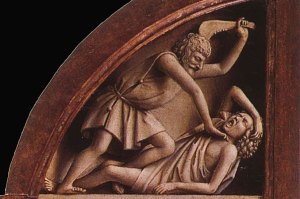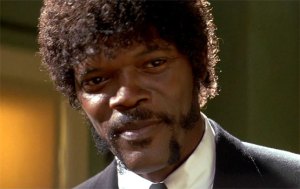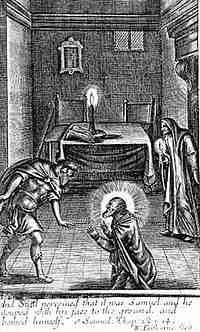 But wait; if we’re criticising Solomon, we need to remember that his dad made his share of mistakes, two of which are highlighted as his major flaws. The first is straight-forward – David has an affair with a woman named Bathsheba, gets her pregnant and, when he can’t cover it up, has her husband killed. David pays the consequences of that, and rightly so – there’s no way a situation like that isn’t going to end badly.
But wait; if we’re criticising Solomon, we need to remember that his dad made his share of mistakes, two of which are highlighted as his major flaws. The first is straight-forward – David has an affair with a woman named Bathsheba, gets her pregnant and, when he can’t cover it up, has her husband killed. David pays the consequences of that, and rightly so – there’s no way a situation like that isn’t going to end badly.
His other big mistake is stranger – he takes a census. The man who took down Goliath is brought low by a census. To make matters more complicated, it’s a census that God orders him to take so that God can punish him for taking a census.
What?!
This is one of those stories I don’t quite know what to do with. But here’s an idea.
It’s obvious from the passage that everyone knows that taking a census of Israel’s military is a bad idea. I can see the logic in this – they’re not meant to trust in the strength of their army or their resources, they’re meant to trust in God. After all, the Bible is full of examples of God using a small force to defeat huge armies. Maybe counting the fighting men is the thin end of the wedge, an example of misplaced confidence that could end up with a king having lots of horses (and their associated chariots), thus trusting in their own strength and not God’s. I can understand that.
But then God manouveres them into a stuation where they’re going to get punished for something he told them to do. It seems a little unfair – if they need to be punished, then punish them for what they did in the first place.
(Interestingly, the 1 Chronicles 21 version of this story says that Satan instigated the census, not God… But as Satan’s role in the Old Testament is often to test people’s faith in God, the end result is the same. After all, David has a choice in all this. That said, this post would have been way easier had I just gone with Chronicles…)
So allow me to indulge in some random speculation again: What if God is expecting an argument?
Stick with me. It’s not like people haven’t argued with God before. Back in Genesis, God tells Abraham he’s going to destroy Sodom and Gomorrah. Realising that his nephew is living in Sodom, Abraham starts bargaining with God – “Would you save the city if I could find 50 good people living there? What about 45? What about thirty? Twenty? Ten?”
And instead of getting angry, God goes along with it. It doesn’t pay off, as ten good men can’t be found, but still Abraham tried and got a positive response. God responds to an act of compassion, even if Abraham does have a vested interest.
And then there’s Moses’s disagreement with God. In Numbers 14, the Israelites are on the verge of rejecting God, deposing Moses and electing themselves a leader to take them back to Egypt. God is understandably furious at this lack of gratitude and decides to wipe them all out and start again with Moses.
Moses says no.
“Look, if you kill them all, everyone will say that you couldn’t carry out your promise to give these people a land of their own. Can you forgive them instead?”
And it works, to a degree. The instigators of the rebellion are killed by a plague, and entry into the land is delayed for a generation so that the people aren’t always so eager to go back into slavery in Egypt, but Israel survives. Again, God responds to an act of compassion.
Right, now look at the consequences of David’s census. He carries it out, a plague falls on the land and wipes out thousands of people. David realises what’s happening and sets up an altar to God at his own expense in order that he might intercede on behalf of his people. He does, the plague stops and God responds to an act of compassion.
Which raises the question, what would have happened if David had said no to the census? What if he’d argued with God? Eventually he gets involved on behalf of his people and God relents; would acting sooner have made a difference.
Well maybe, maybe not, but sometimes we need to take a risk on behalf of others. Abraham did, Moses did, David did eventually. And God responds to that, which is understandable, because that’s exactly what he does in the New Testament, with nail pierced hands on a Friday afternoon.




